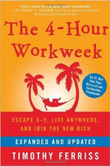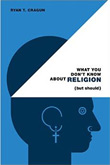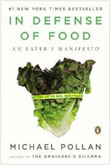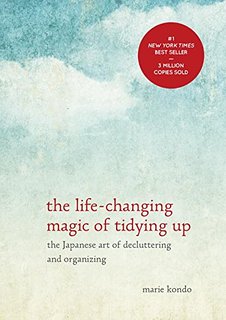Effective Altruism Poised to Make Major Impact
Brandon Sun, November 27, 2017 – David McConkey
It’s Cyber Monday! After hitting the stores on Black Friday, today’s goal is to squander time at work by going online to order more stuff. But during the Christmas shopping rush, why not pause and think about charitable giving? That’s the idea of tomorrow’s Giving Tuesday. And why not think about giving in the best way possible: not just on one day, but all the time. That’s the idea of “effective altruism.”Based in the U.K., the effective altruism movement conducts research and provides information and support to those interested in becoming better donors. A leading figure is Oxford philosophy professor William MacAskill, who describes the concept in his book, Doing Good Better.
There are thousands of charities. How do donors choose? Often we make charitable choices because of advertising, our interests, emotional appeal, or even on a whim. But we can do more good by being more intentional. “Effective altruism is not just about making a difference, or doing some amount of good,” MacAskill says. “It’s about trying to make the most difference you can.”
MacAskill and his group start by asking hard questions about charitable activities. How many people benefit, and by how much? Is this the most effective thing you can do? The questions guide careful research; the findings identify the best outcomes and the best charities to support. MacAskill reports that the results are astounding.
“We discovered that the best charities are hundreds of times more effective at improving lives than merely ‘good’ charities.”
MacAskill reminds those of us in developed countries like Canada that we are well-off residents in our global village. Giving What We Can, the effective altruism website, has calculations that vividly demonstrate this. You enter your country and your household after-tax income, and it calculates how rich you are in a global context.
Where do you think your income would place you among the world’s population? You might be surprised to learn that most Canadians – even those earning minimum wage – are in the top 10%! You can easily have the website do the calculation for your own situation.
Recognizing where we stand globally is important for two reasons. First, it shows how relatively wealthy we are; this can be an impetus for us to help others more. Second, it shows that our charitable spending can do much more good in a poor country than charitable spending in Canada. Simply put: compared to Canada, their needs are greater, and our money goes further.
MacAskill draws an analogy by asking us to think of ourselves in a pub after work. “Imagine a happy hour where you could either buy yourself a beer for five dollars, or buy someone else a beer for five cents.”
“If that were the case, we’d probably be pretty generous,” MacAskill observes. “But that’s effectively the situation we’re in all the time.”
 A discussion about altruism is a good thing. Rigourous research and
data-driven analysis is an invitation to think more rationally about
charitable activities. The notion of effective altruism is a challenge
to do better for governments, businesses, non-profit organizations,
philanthropists and ordinary donors and citizens.
A discussion about altruism is a good thing. Rigourous research and
data-driven analysis is an invitation to think more rationally about
charitable activities. The notion of effective altruism is a challenge
to do better for governments, businesses, non-profit organizations,
philanthropists and ordinary donors and citizens. But the idea of effective altruism can be controversial, even unsettling. Supporting projects overseas may be the best use of charitable funds. But this runs counter to our natural desire to give to charities that appeal to our own personal interests or to our connection with our local community. I wrestle with this quandary myself and will explore this in a future column. I welcome your thoughts.
Another initiative of MacAskill’s team also deserves mention: “80,000 Hours.” This is the amount of time one devotes to their work over their lifetime. How do you want to spend those hours? Aimed especially at young people choosing a career, the 80,000 Hours website has questions and ideas about how one could best employ that time.
“Make the right career choices,” the website suggests, “and you can help solve the world’s most pressing problems, as well as have a more rewarding, interesting life.”
My sense is that the effective altruism movement will have a major impact. It already has been hailed by public intellectual Steven Pinker as “one of the great new ideas of the 21st century.”
The concept is summed up by the sub-title of MacAskill’s book: How Effective Altruism Can Help You Help Others, Do Work that Matters, and Make Smarter Choices about Giving Back.
* * *
See also:
Doing Good Better . . . on
Amazon.com
Quality of Life, Well-Being Research Something We Can Feel Good About
Deepening Our Thinking in the Internet Age: Ten Tips
Changing the Calendar, Changing the Culture
Popular Right Now:
- 15 Tips for Healthy Eating
- Quality of Life, Well-Being Research Something We Can Feel Good About
- Diets Don't Work, So What Does?
- Political Contributions: Top Ten Canadian Tax Tips
- Nestle Fitness 14 Day Weight Loss Program; What is Wrong Here?
- Charitable Donations: Top Ten Canadian Tax Tips
Must Read Books:
The 4-Hour Workweek:
Escape 9-5, Live Anywhere, and Join the New Rich

What You Don't Know About Religion (But Should)

In Defense of Food:
An Eater's Manifesto

The Life-Changing Magic of Tidying Up:
The Japanese Art of Decluttering and Organizing

Don't
Even Think About It:
Why Our Brains are Wired to Ignore Climate Change

Like This? Share It!
Press Ctrl + D to Bookmark!
